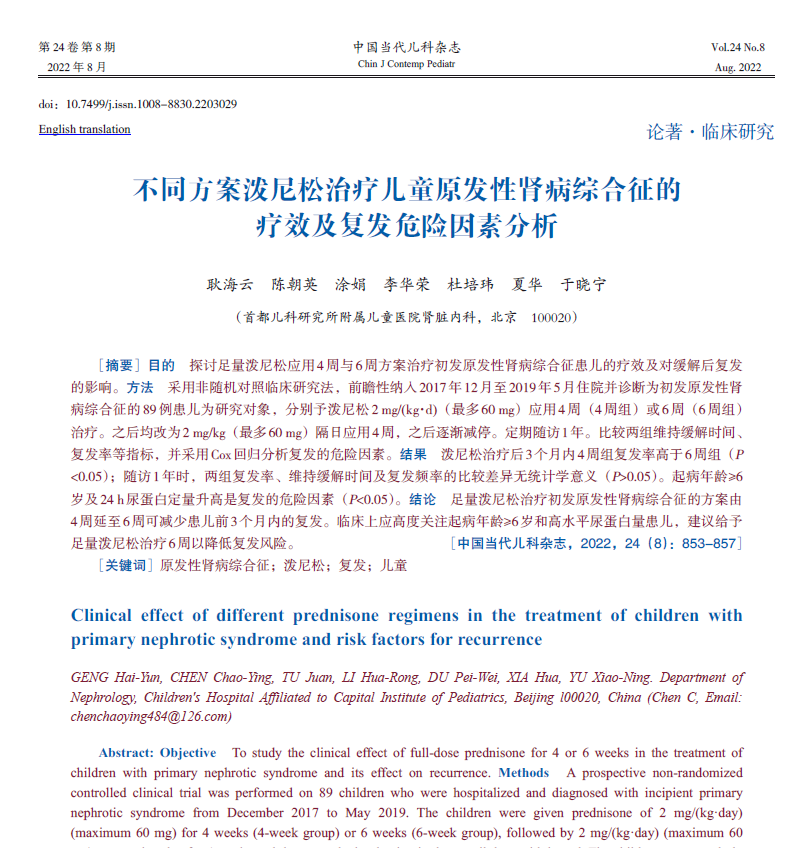 PDF(539 KB)
PDF(539 KB)


Clinical effect of different prednisone regimens in the treatment of children with primary nephrotic syndrome and risk factors for recurrence
GENG Hai-Yun, CHEN Chao-Ying, TU Juan, LI Hua-Rong, DU Pei-Wei, XIA Hua, YU Xiao-Ning
Chinese Journal of Contemporary Pediatrics ›› 2022, Vol. 24 ›› Issue (8) : 853-857.
 PDF(539 KB)
PDF(539 KB)
 PDF(539 KB)
PDF(539 KB)
Clinical effect of different prednisone regimens in the treatment of children with primary nephrotic syndrome and risk factors for recurrence

Primary nephrotic syndrome / Prednisone / Recurrence / Child